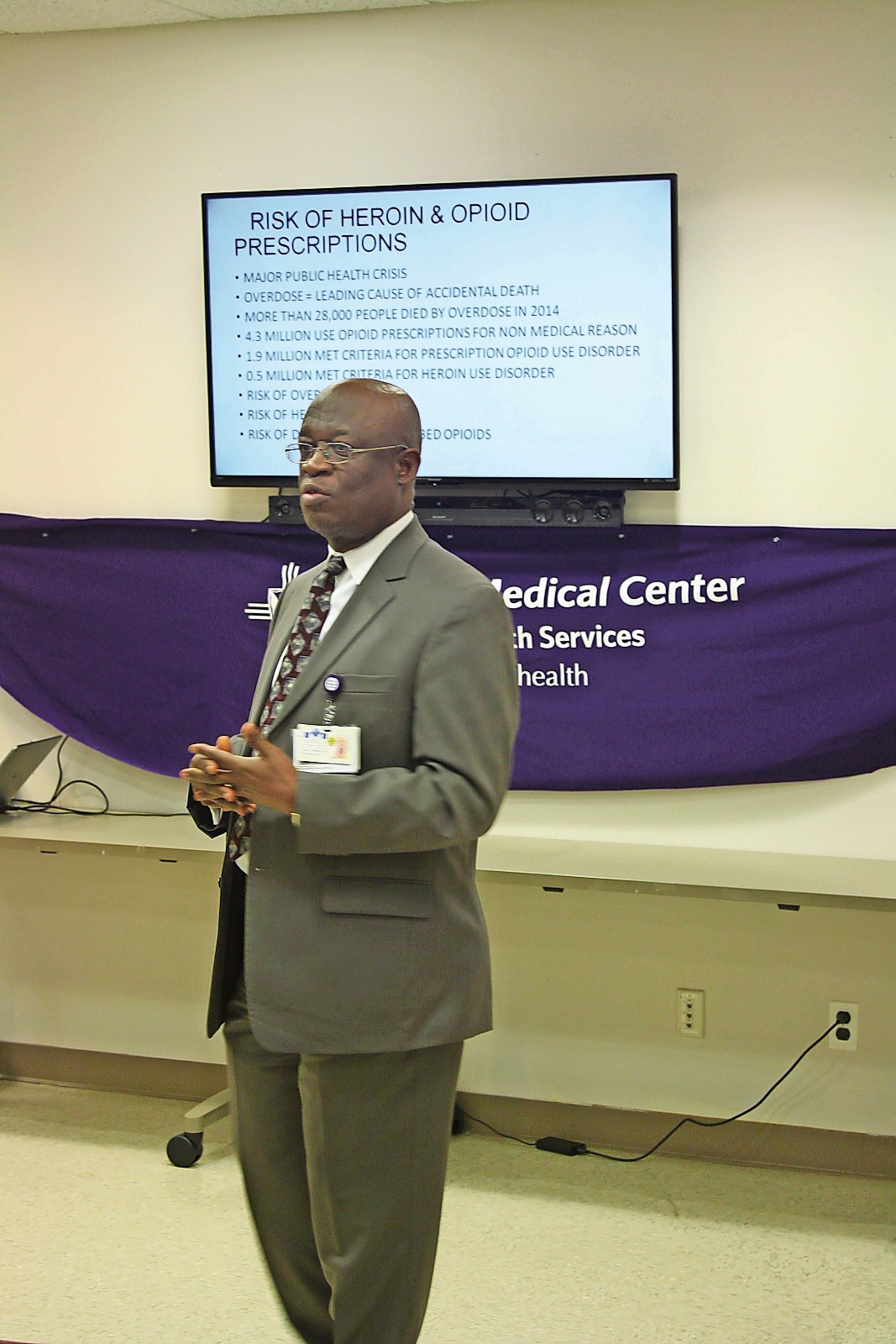Mercy opens opioid withdrawal program
Mercy Medical Center has opened a program to help people going through withdrawal from opioid addiction.
Based out of Mercy’s Outpatient Behavioral Health Services center in Garden City, the Ancillary Withdrawal Management Program augments the already existing outpatient substance abuse program. The service is for people going through mild to moderate withdrawal, and includes medication management, support groups, therapy and relapse prevention.
Mercy presented the new program in front of an audience of about 50 people, including Linda Mangano, the wife of County Executive Ed Mangano and many health care professionals.
Opioid addiction, Medical Director Dr. Karl Dormesy, explained, is the misuse of drugs such as prescription painkillers or heroin to induce euphoria. “First we have to understand our patients,” he said. “Often when we treat those patients we get frustrated about their behavior, but you have to understand what’s happening in their brain. It’s a disease of the brain. Because as they take the drugs, there’s an effect and they have to seek the medication to get it. And that’s why we have relapse. You want your patients to have healthy behavior and stay abstinent, but their motivation is seeking the drugs.”
Dormesy added that it was important that treatments during withdrawal include support for all parts of an addiction, combining medications and psychotherapy. The drugs given to a patient depends on their state, severity and length of withdrawal. There are also medications for withdrawal symptoms, such as pain and nausea. “All those things also need to be addressed,” he said. “Because sometimes if you don’t do it, the patient will tend to relapse.”
Another challenge for providers is access and availability of treatment. To that end, Mercy BHS has received an additional New York State Ancillary Withdrawal Management certification and the psychiatrists are authorized to prescribe buprenorphine, a medication used to treat opioid addiction.
“When we use buprenorphine in somebody who is dependent on opioids, what we are trying to do is to reduce opioid use,” Dormesy said. “Instead of them using illicit, illegal opioids with all the pathological behavior, we give them their medication that can control the craving for them.” He added that buprenorphine is not as dangerous as heroin and people who overdose are less likely to die. However, it is still dangerous — especially if combined with alcohol.
Also helping to treat addiction, Gov. Andrew Cuomo recently signed a series of bills that get rid of the need for insurer pre-authorization for treatments and medication, as well as expanding emergency treatment services.
For more information about the Ancillary Withdrawal Management Program, call the intake coordinator at (516) 705-3400.

 56.0°,
Overcast
56.0°,
Overcast 




